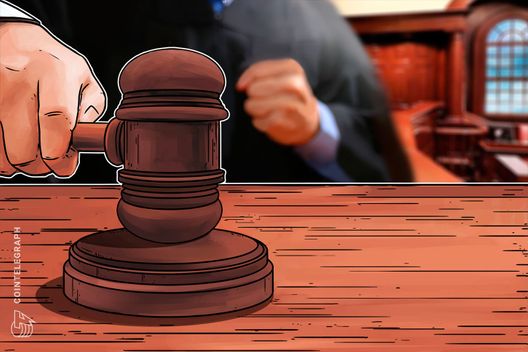AI guidance for judges in England and Wales warns against risks
Senior judges in the U.K. have published AI guidelines for the judiciary to follow, which advise how to use AI and warn of the potential risks of using the technology in trials.
234 Total views
22 Total shares

A group of four senior judges in the United Kingdom have issued judicial guidance for artificial intelligence (AI), which deals with the “responsible use” of AI in courts and tribunals.
The guidance, published on Dec. 12, is directed toward magistrates, tribunal panel members and judges in England and Wales, and it is intended to inform and warn court officials.
The guidance points out potentially useful instances of AI usage, primarily in administrative aspects such as summarizing texts, writing presentations and composing emails.
England’s second most senior judge, Sir Geoffrey Vos, said AI provides “great opportunities for the justice system, but because it’s so new we need to make sure that judges at all levels understand [it properly].”
However, most of the guidance cautions judges to be vigilant about consuming false information produced through AI searches and summaries, as well as cautious about anything false being produced by AI in their name. Particularly not recommended is the use of AI for legal research and analysis.
The guidance said information provided by AI tools “may be inaccurate, incomplete, misleading or out of date.” Also, it noted that United States laws may influence most AI systems. “Even if it purports to represent English law, it may not do so.”
As it stands, judges in England and Wales are not obliged to reveal any prep work before producing a judgment.
According to the issuing judges, this guidance is the first step in a “suite of future work” to support judiciary interactions with AI. In the future, the judiciary in both courts and tribunals will have the opportunity to take a survey and submit any questions.
Related: Microsoft faces UK antitrust probe over OpenAI deal structure
This judicial guidance comes shortly after the U.K. held its inaugural AI Safety Summit at the beginning of November.
The event gathered officials from countries worldwide, heads of prominent tech companies developing in the space, and other thought leaders to discuss the future of AI safety.
On Dec. 8, the European Union reached an agreement about its landmark AI regulation, which touches on various facets of regulating the technology, including governmental use, transparency requirements and regulating powerful AI models such as ChatGPT.
Magazine: Real AI use cases in crypto: Crypto-based AI markets, and AI financial analysis









